Earlier this month, City hosted a workshop on digital transformation run by HolonIQ. The workshop was led by Maria Spies, Co-CEO and Meg Hamel, VP Education, both from HolonIQ and included participants from City and other UK higher education institutions. To set the scene for the workshop, Maria asked us to respond to a couple of poll questions about our digital transformation journey. The majority of delegates had made a start on their journey, whilst two participants indicated that they were in the “thick of it”. We were then asked what our top challenge was and ‘Technical infrastructure’ came out top (8 delegates) followed by ‘Culture/change management’ (3) and ‘Budget/funding’ (2). No one selected ‘Instructor capability & training’, ‘Regulation & policy’ or ‘Appropriate technology solutions. Maria noted that in other workshops they had run ‘Culture/change management’ and ‘Instructor capability & training’ usually came out top. It could be that the large number of City delegates influenced the results as one area of City’s new strategy is a focus on improving the supporting infrastructure.
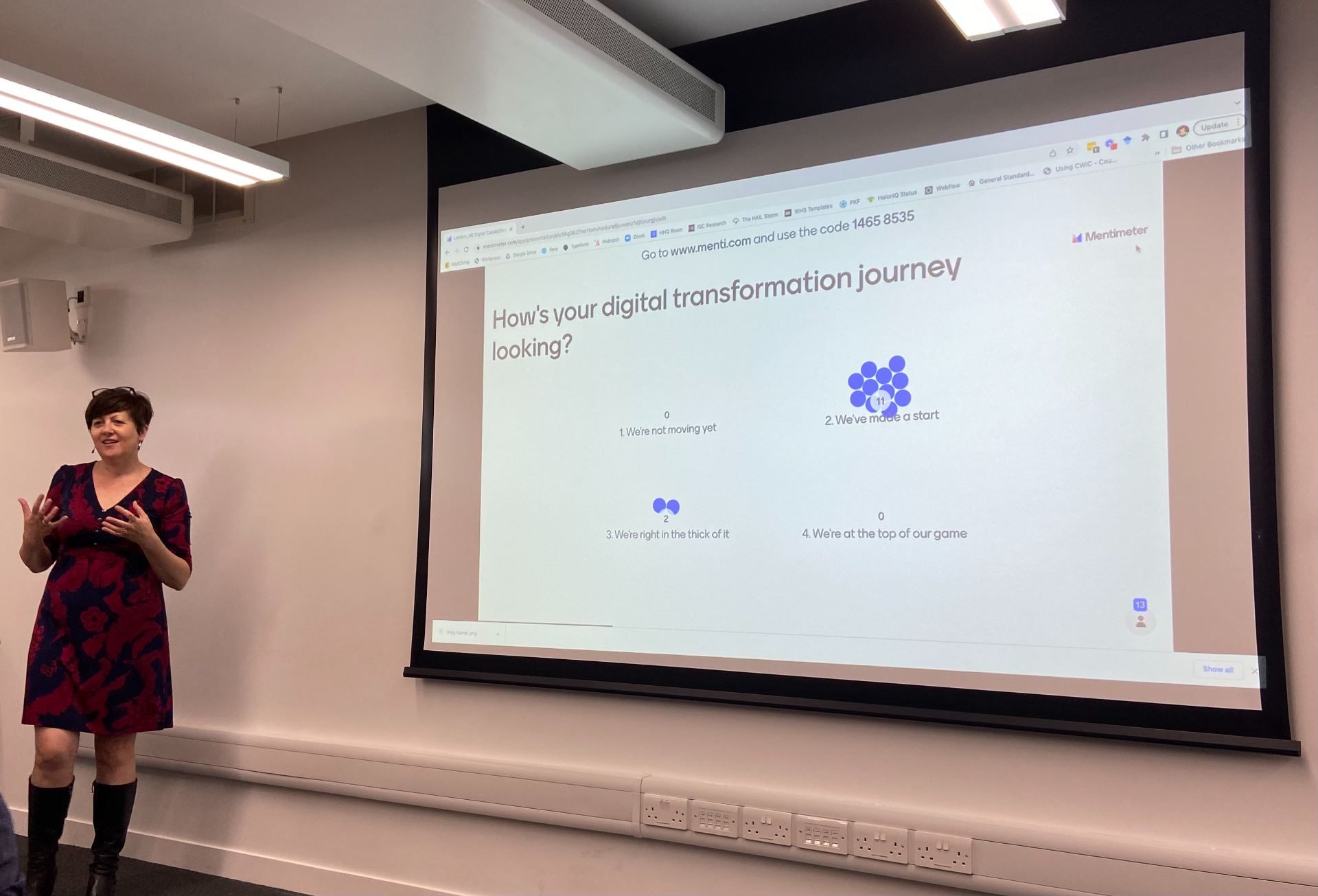
Maria talked us through how digital transformation was evolving in higher education with key points being an increased focus on how digital can support the student experience, the impact of Covid-19 on legacy teaching approaches and the role of campus-based learning in light of innovation in digital, online and hybrid learning. Institutional change was noted as the biggest challenge to digital transformation and whilst there is optimism across the sector, there was also an acknowledgement of the complexity ahead, especially in relation to equity issues and staff readiness/skills.
Contents
Strategic shifts

In terms of the strategic shifts that might impact on the sector, Maria highlighted four areas:
- New credentials – Maria talked through the range of credentials now on offer, starting with short courses/badges at 1-10+ hours, up to accredited degree programmes at 1500-5000 hours. She mentioned that most institutions have a micro-credentials strategy which is typically being led by a continuing education or continuing professional development department. She also noted that micro-credentials are now being embedded into government qualification frameworks which will mean micro-credentials are now fundable. Data from a survey by HolonIQ indicated that most universities feel that micro-credentials will be included into university offerings in the next ten years.
- Education work nexus – this was related to a need for employees to refresh and update their knowledge and skills throughout their career, leading to a growth in the number of adult learners who need education that may challenge traditional university learning models. Shortages in particular areas (e.g. programmers/developers) mean that more companies are looking to reskill their staff and it is anticipated that future government funding will support reskilling.
- Borderless competition – whilst our current competitors are typically other local universities, Maria noted the growing number of competitors that span both geographic and industry barriers and that provide new types of learning products. For example, the rise of online programmes through Arizona State University and the International University of Applied Sciences, short courses through Coursera and Skillshare, and technical courses offered by industry leaders such as Google or AWS. This means we may find ourselves competing more widely than before, especially if these providers move into the provision of accredited degrees.
- Omni channel learning – using an analogy of a physical shop needing to have an online presence and offering delivery and ‘click and collect’, Maria emphasised the role of omni channel learning (similar to HyFlex) such that there is an expectation that courses will be available in a variety of physical and virtual formats, e.g. campus synchronous, online synchronous and online asynchronous, with flexibility for students to choose what works for them.
When asked which strategic shift would impact your institution most, the majority of delegates (40%) selected ‘borderless competition’; this was followed by ‘new credentials’ and ‘omni channel learning’ in equal second (27% each), and ‘education work nexus’ with 7%.
City’s approach to digital transformation
Professor Susannah Quinsee, City’s Vice-President (Digital and Student Experience), then presented City’s approach to digital transformation.
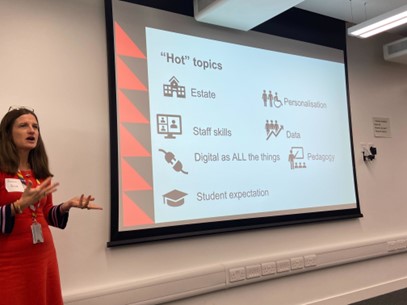
Susannah described City’s context in terms of a new President, a new Senior Leadership Team, a new strategy and the post-pandemic return. She noted that digital is seen as an enabler for achieving the aims of the new strategy and City’s approach to digital transformation has been developed to align with the three phases of the strategy (We will, We plan to, We aspire to) and mirrors the Educause “three Ds” of digitisation, digitalisation and digital transformation. The City approach is therefore:
- Data and discovery – fixing our infrastructure and discovering our vision
- Designing and delivering of digital services at scale
- Differentiating our offer to personalise the university for our staff and students.
Susannah highlighted the current priorities in relation to infrastructure, including the ERP replacement, new academic model and student record system, and next stages for the digital transformation project in terms of mapping how the eight strategy workstreams intend to use digital. She concluded by talking about some of the ‘hot topics’ such as estates, personalisation, staff skills, student expectations and pedagogy.
Activity 1 – digital capability framework
For the first activity, we used the HolonIQ digital capability framework to consider our strengths and areas for improvement across the four areas of the framework. The following table summarises the areas noted by participants for each area. In several areas, the groups noted the same item as both a strength and an area for improvement, e.g. designing for digital, and onboarding and orientation.
| Area | Strengths included: | Areas for improvement included: |
| Demand and Discovery | New business models, student recruitment, social media and community management, community outreach, applications and admissions, recruitment events. | B2B partnerships and recruitment, student relationship management, marketing and automation, scholarship programme, business processes (automation) |
| Learning Design | Learning environments, simulations and labs, designing for digital, digital content creation, faculty expertise, learner needs and analytics. | Designing assessment, learning design, co-design, designing for digital, simulations and labs, personalised and adaptive learning, teaching strategies, learner needs and analytics. |
| Learner Experience | Retention and learning support, faculty professional development, lecture capture, independent learning resources, library services, asynchronous learning, synchronous learning, onboarding and orientation, student voice and surveys, student life, wellbeing and mental health, digital assessment, learning analytics. | Student communities, asynchronous learning, retention, timetabling and schedule management, onboarding and orientation, student life/sense of belonging, assessment and feedback, tests and exams. |
| Work and Lifelong Learning | Employability, skills building, placements, career planning, industry engagement. | Competencies and skills evaluation, customised programmes, continuing education and alumni, alumni engagement. |
Activity 2 – challenges and opportunities
For the second activity we were asked to consider our challenges and opportunities across the four areas of the framework. For the challenges, the considerations were whether they related to people, process or technology. For the opportunities, we were asked to consider whether we would buy, build or partner. The following table summarises the areas noted by participants for each area.
| Area | Challenges (People, process, technology) | Opportunities (buy, build, partner) |
| Demand and Discovery | Applications and admissions (process and technology), market insights and trends (process), CRM, marketing automation (technology), course selection and guidance (technology). | Communications and campaign management, course selection and guidance, student relationship management (buy), new business models (build), course selection and guidance, tuition finance (partner), develop programmes based on how lawyers work (partner). |
| Learning Design | None provided. | Curriculum mapping, data integrity, ensuring all programmes are properly designed (build), designing for digital learning (build), specialist industry partners (partner). |
| Learner Experience | Retention (process), LMS (technology). | Student voice/feedback (buy), portfolio system (buy and build), timetabling and schedule management (buy and build), chat (buy and build), digital campus (build and partner). |
| Work and Lifelong Learning | None provided. | Workplace simulations (buy and build), engaging alumni to work with current students (build), job finding and graduate placements (build), competencies and skills evaluation (partner). |
Summary
This was a useful workshop to get us thinking about our areas of strength and those for improvement. I like the way that the HolonIQ framework breaks down the various aspects of the student journey and think this could be a useful tool for further discussion at City. The workshop helped to highlight where we would benefit from including others in the conversation, such as Marketing, Careers and Alumni. As evidenced by the number of post-it notes, most delegates were able to talk about the Learning Design and Learner Experience aspects of the framework but there were fewer post-its on the areas related to Demand and Discovery and Work and Lifelong learning.
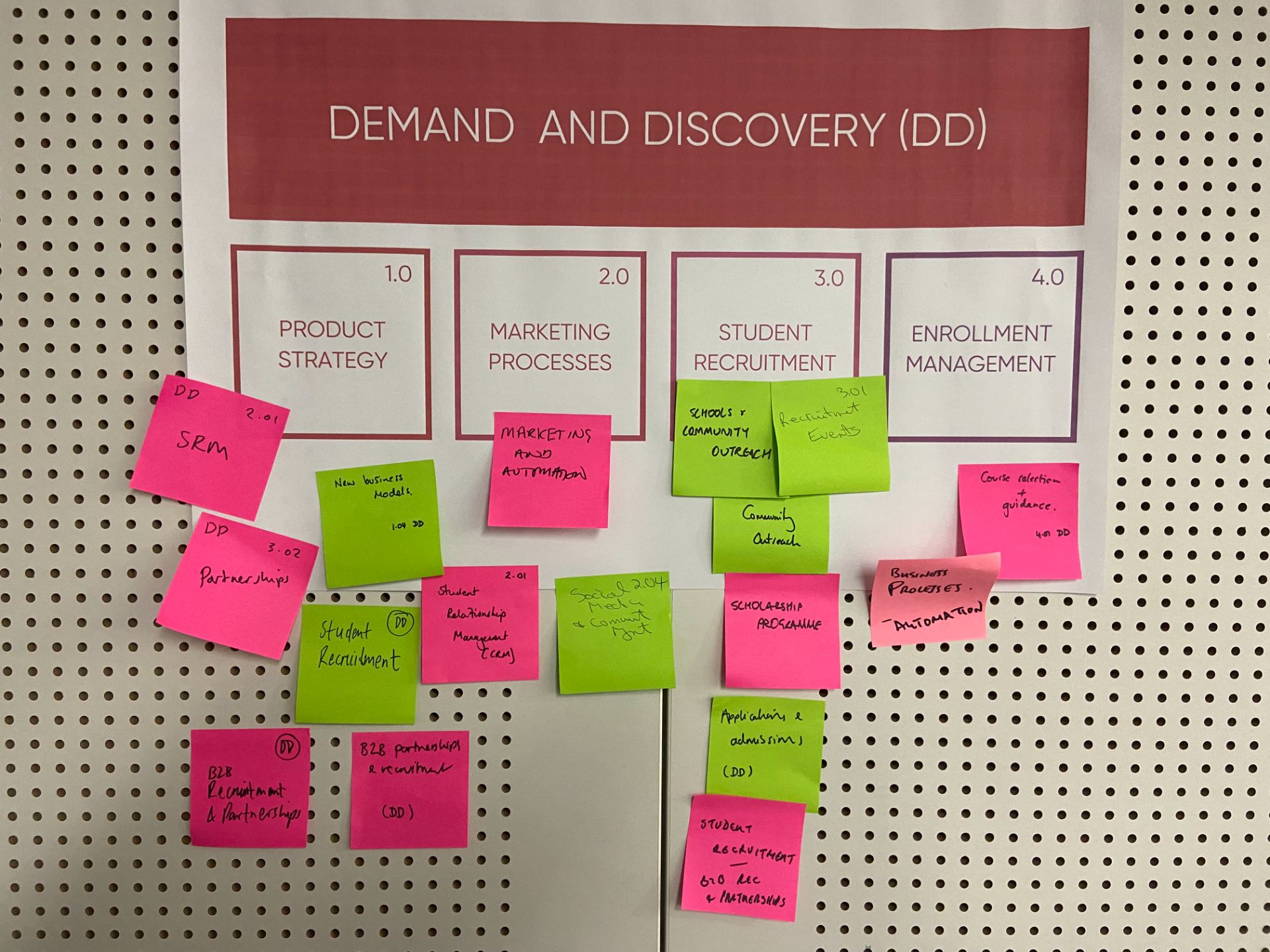
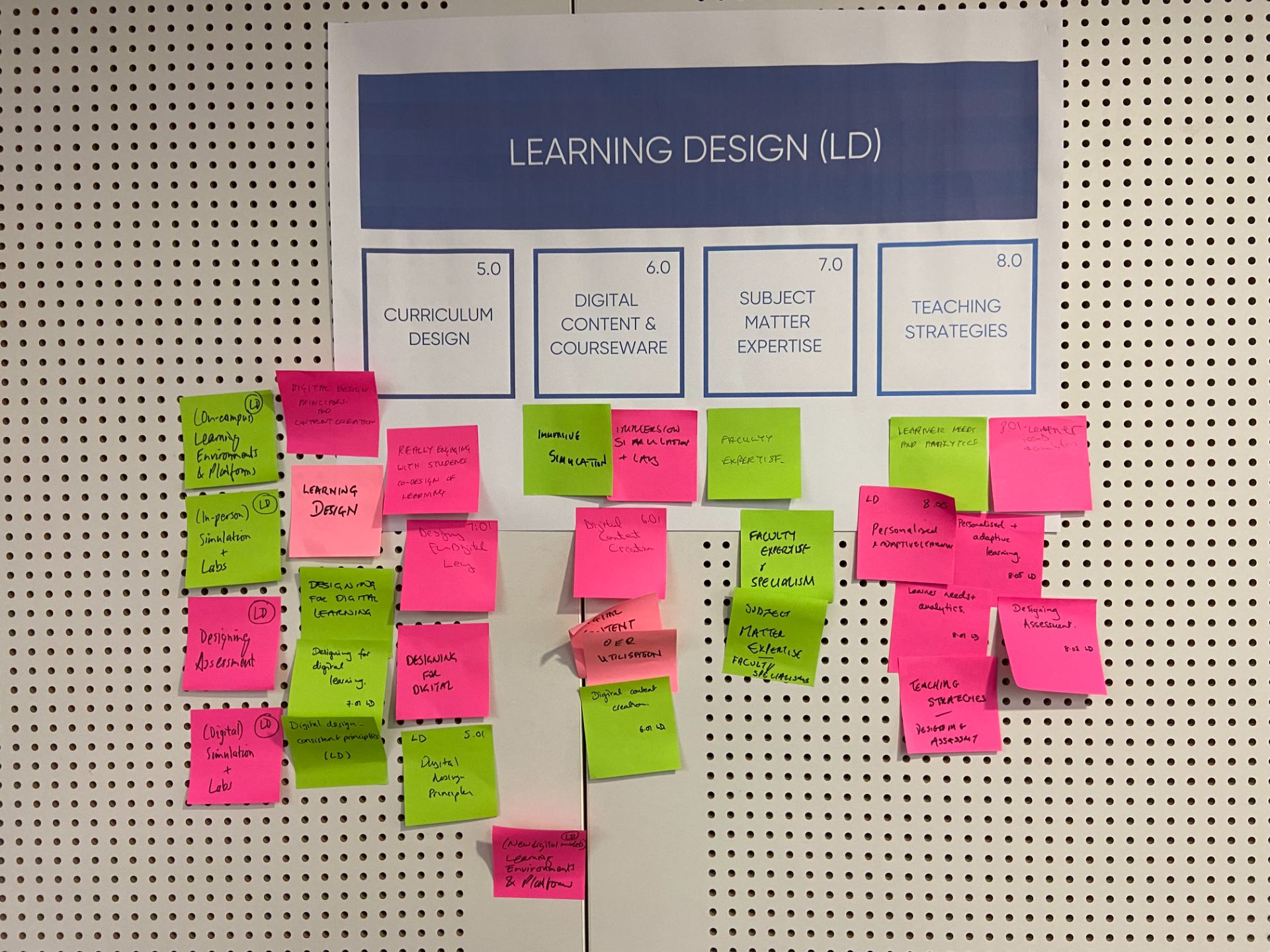
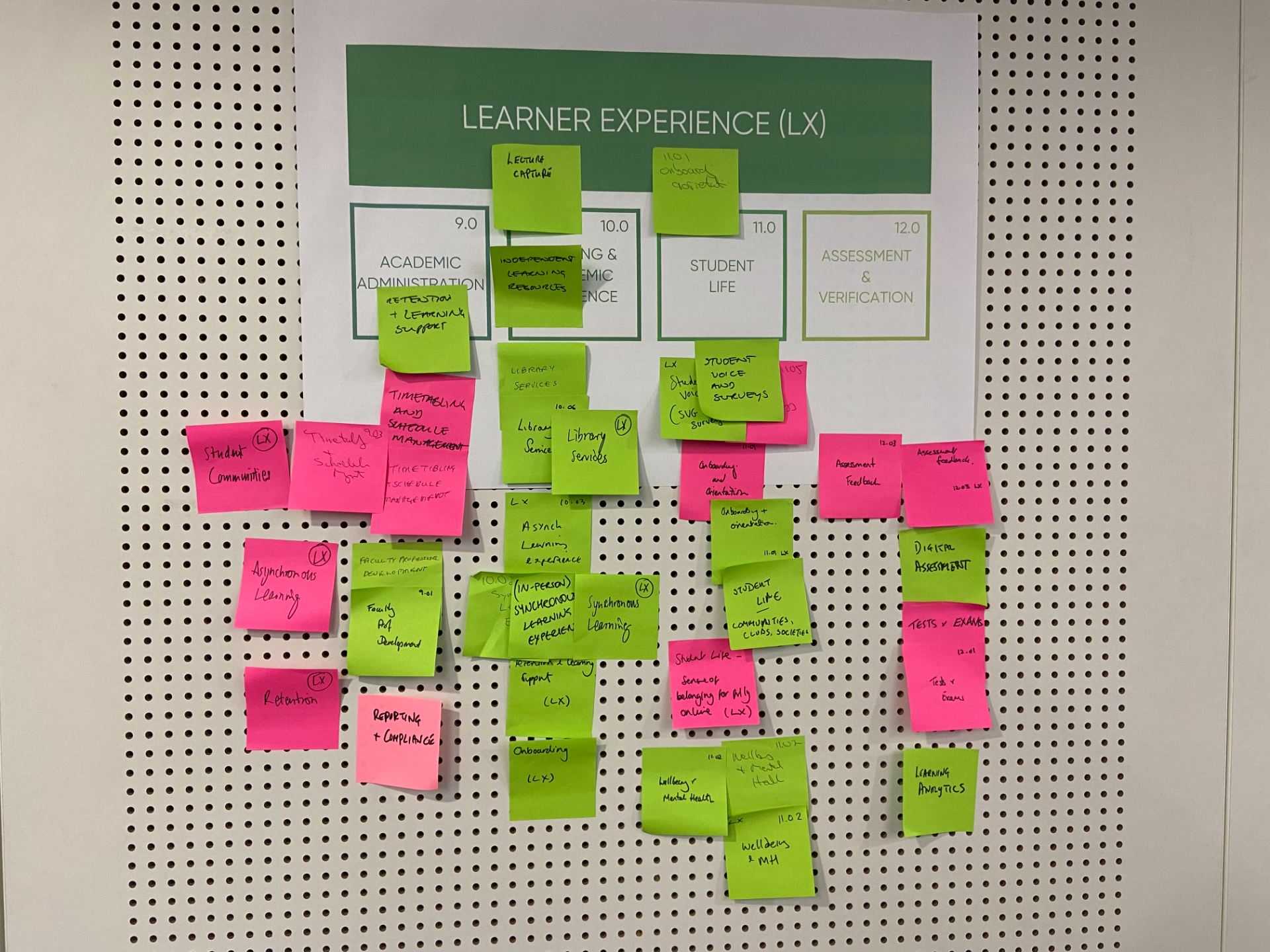
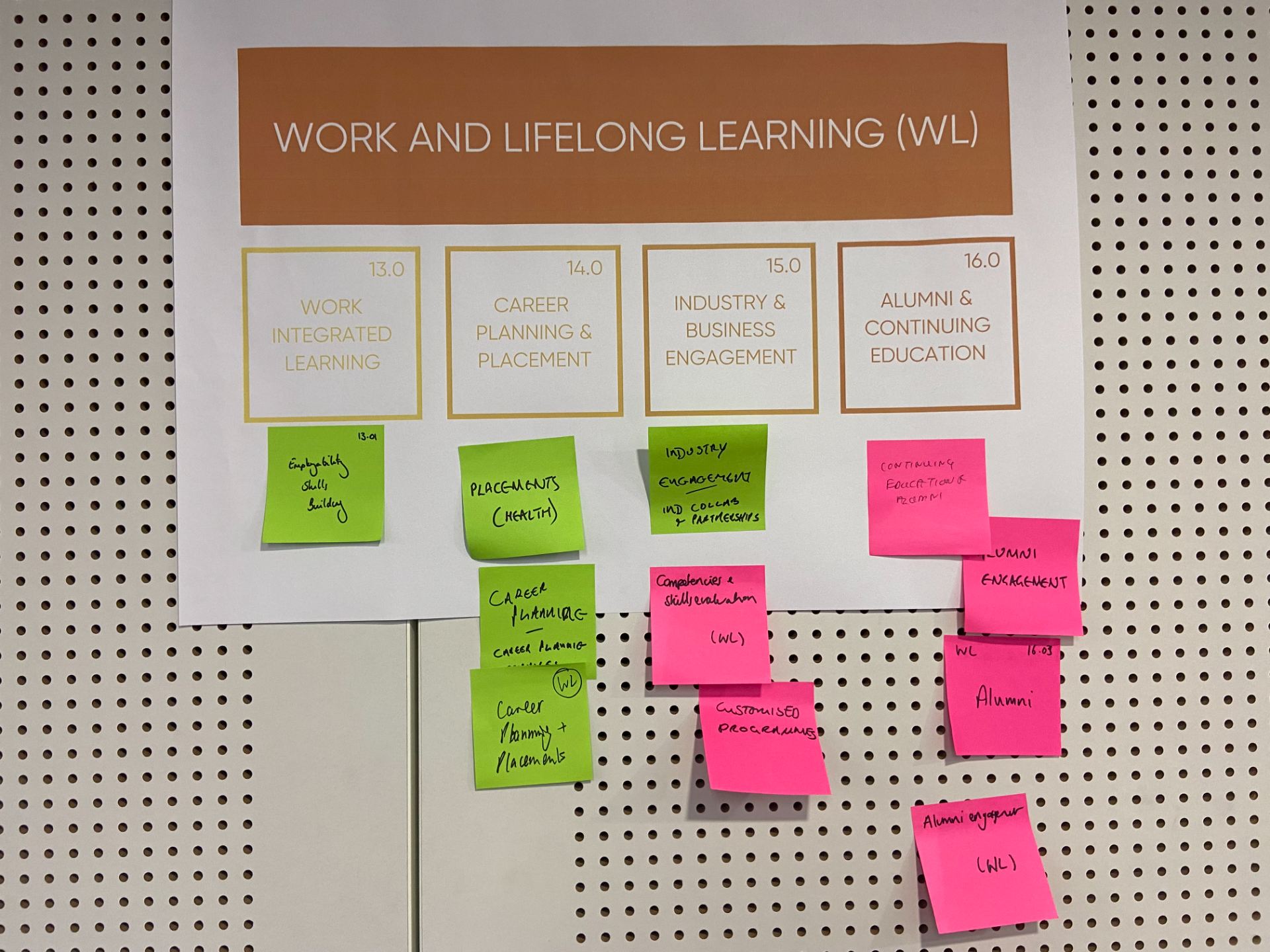

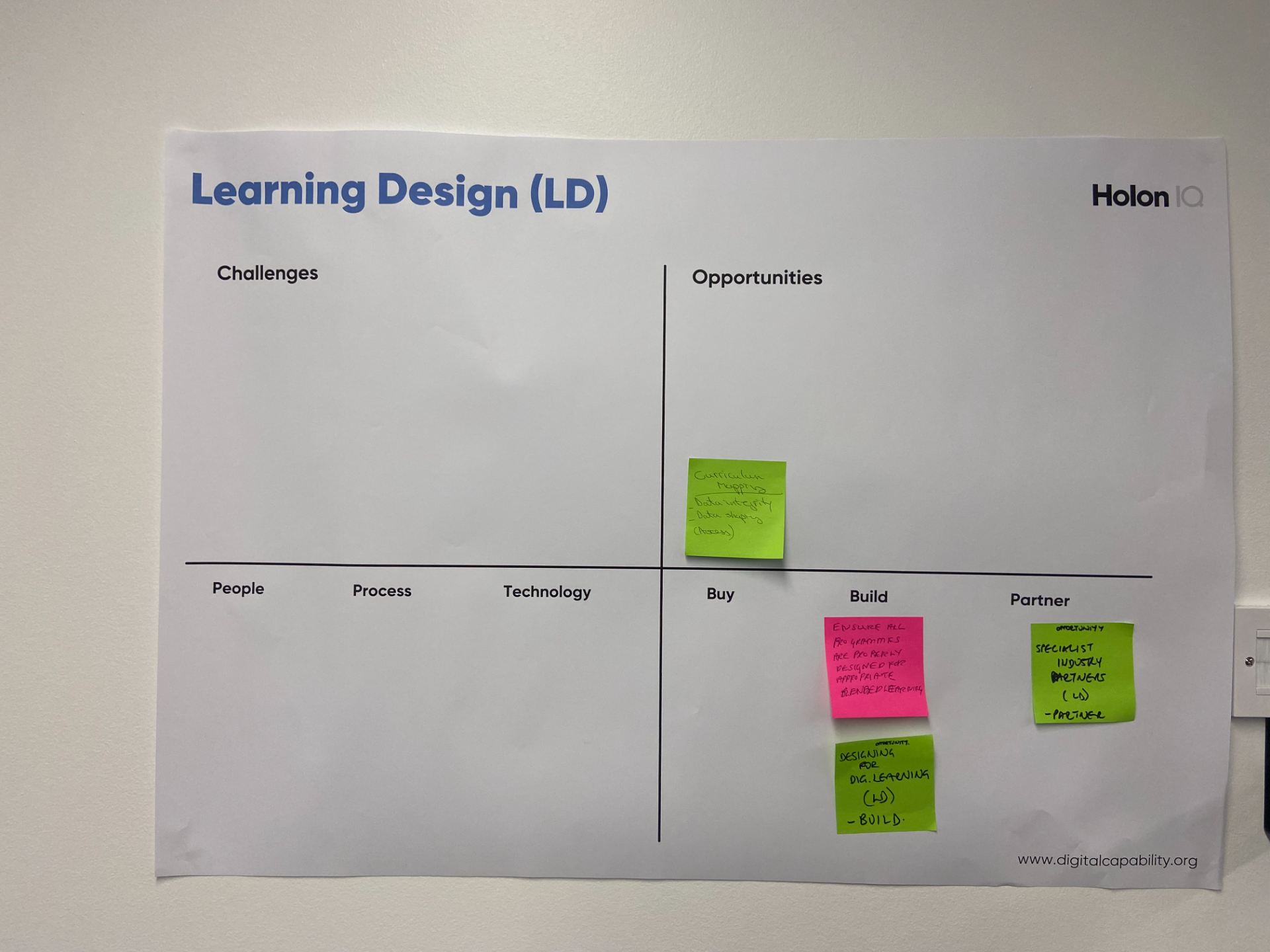
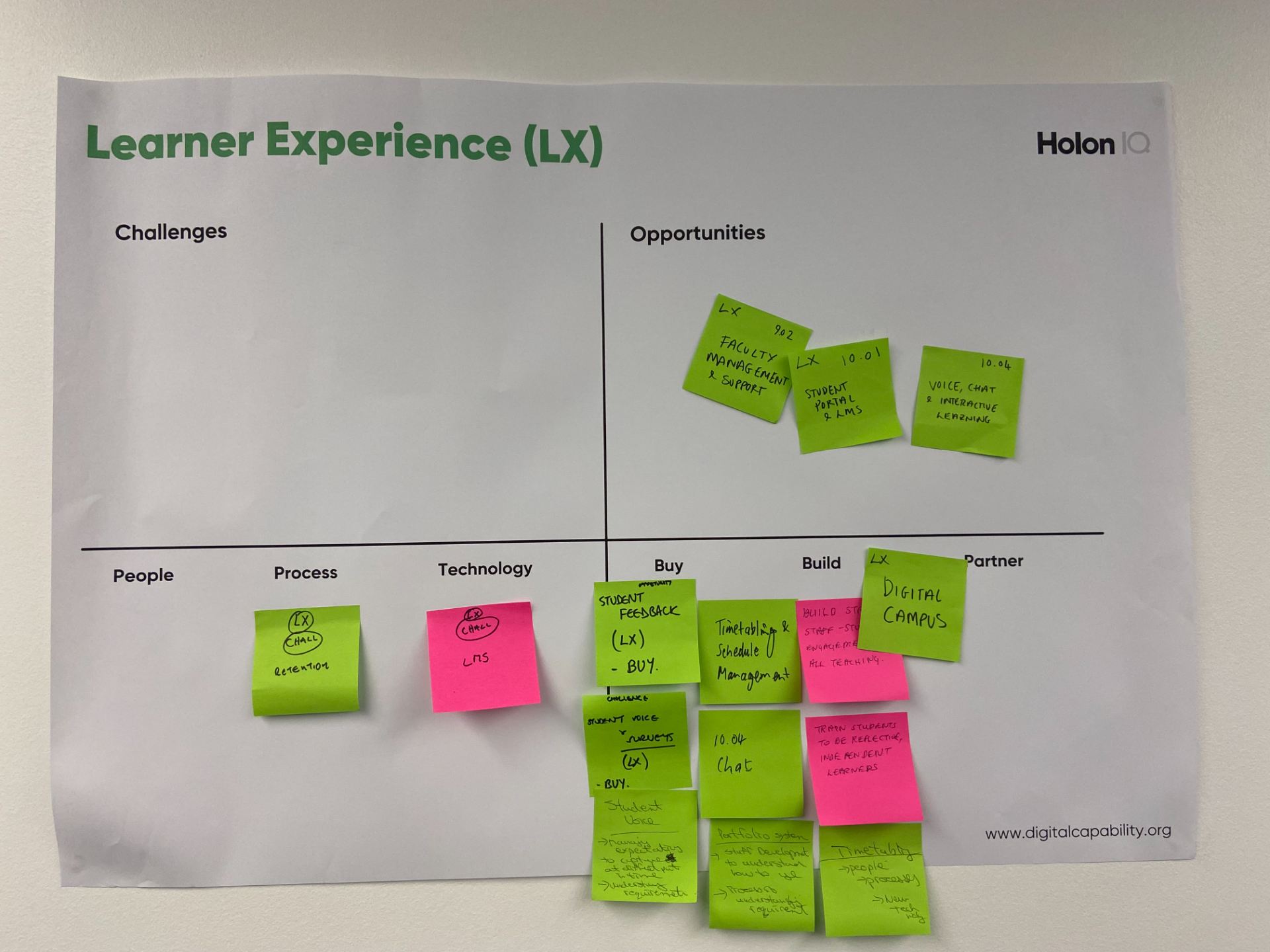
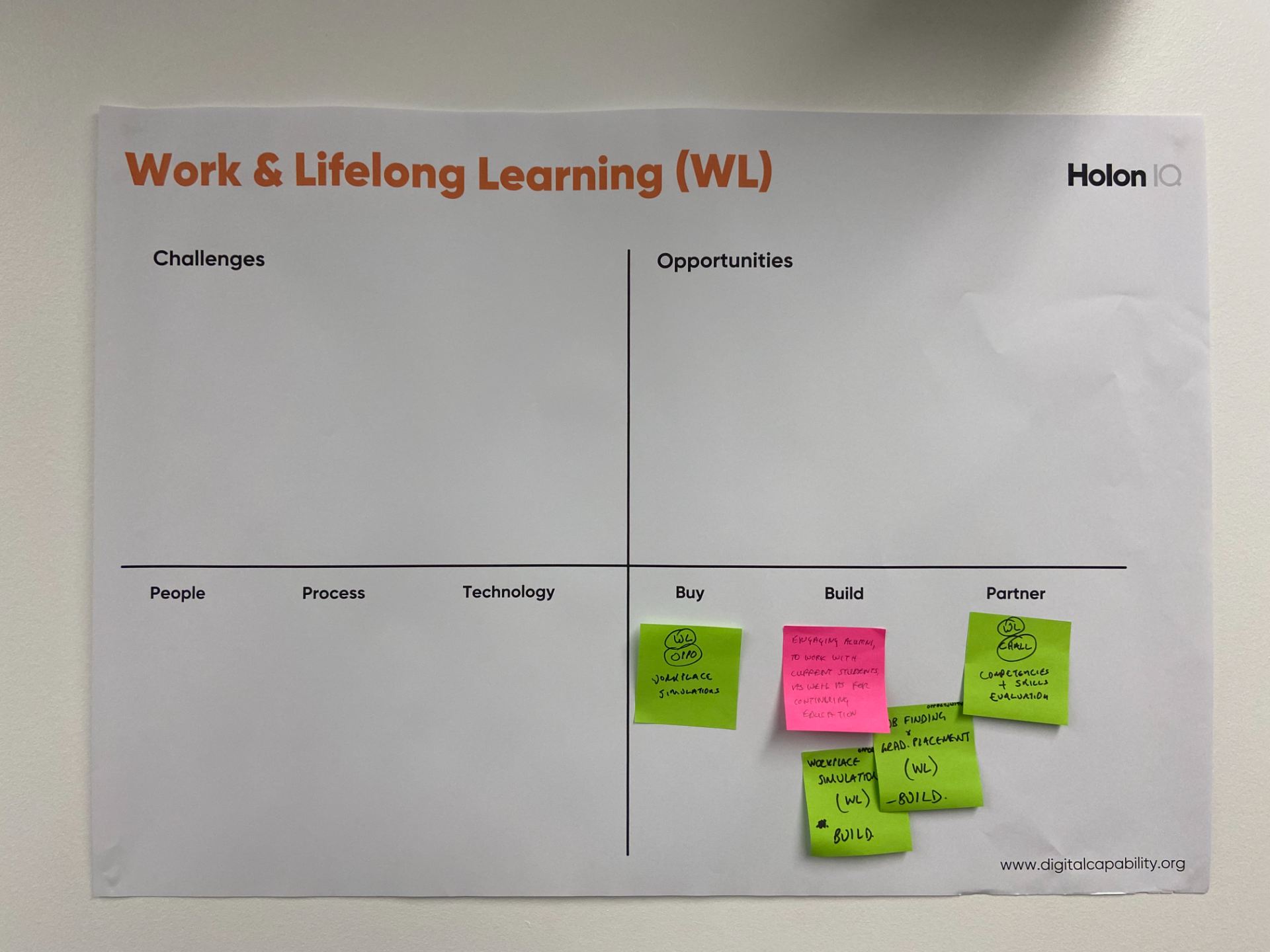

Many thanks for taking the time to share this Julie. I’d considered attending but was unable to, so this is much appreciated.